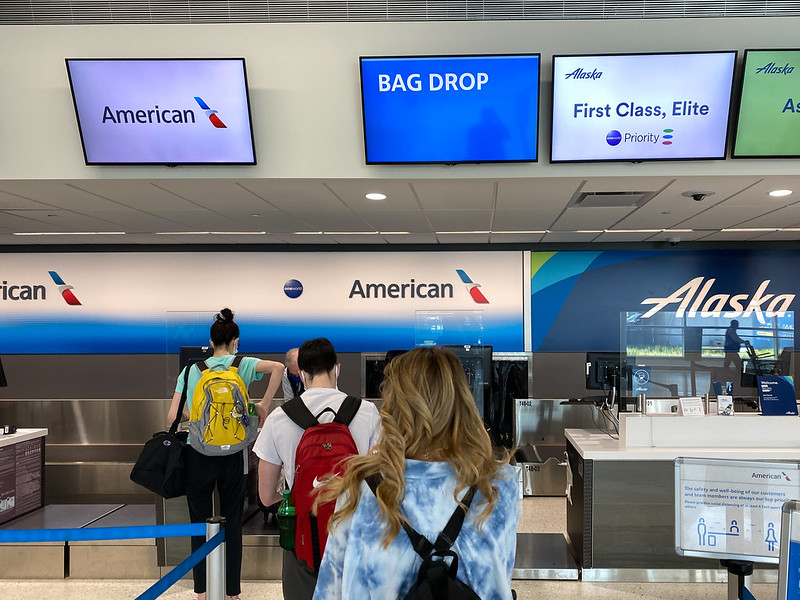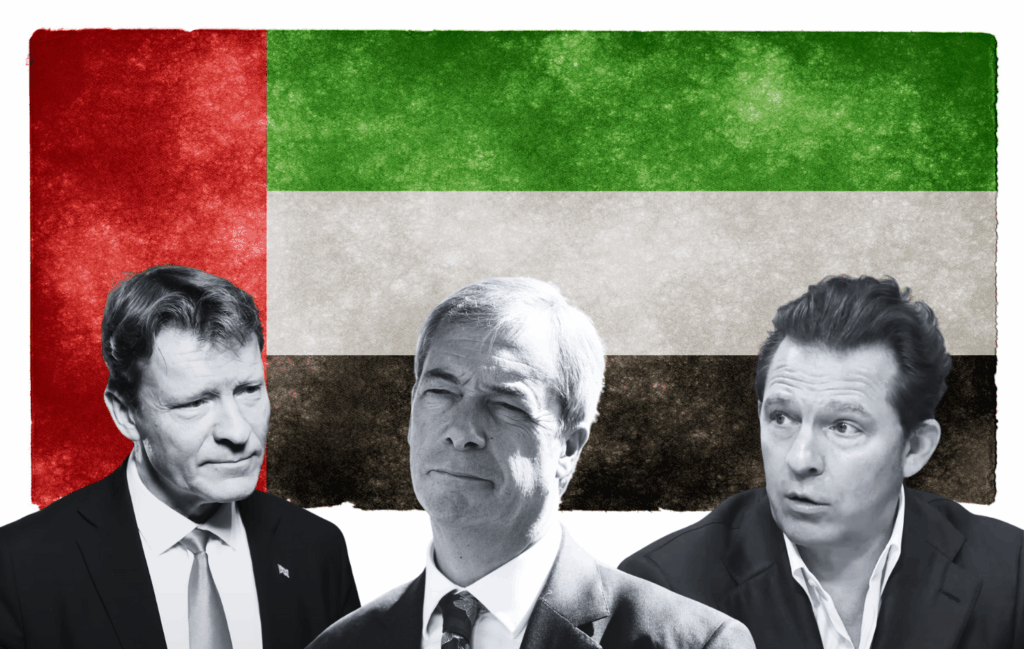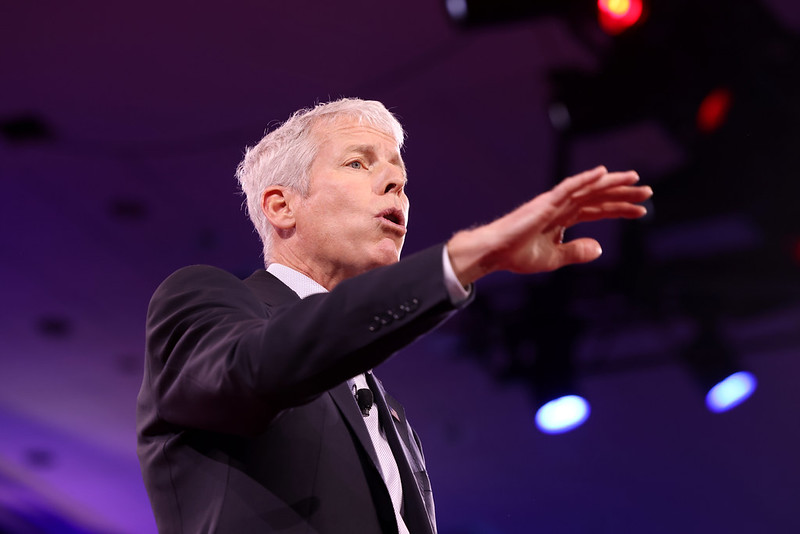As millions sought to evacuate from Florida ahead of Hurricane Milton, reports surged from consumers and industry watchdogs that airfares on flights out of the state were spiking, with tickets that might typically cost a few hundred dollars suddenly going for much higher.
New Yorker Cerina McQuillan told AP News that, as she sought to buy a ticket for her 17-year-old daughter to evacuate, the airline’s website crashed. “All of a sudden it went back on again, and the flights quadrupled in price. It went up to like $750 within a matter of seconds,” she told AP.
Airline watchdogs reported similar findings. “Yesterday and this morning fare searches were producing quite a few four-figure airfares,” William J. McGee, the American Economic Liberties Project’s senior fellow for aviation and travel posted on X on Tuesday, October 8. The National Weather Service warned that Tuesday was the final day to evacuate Florida ahead of Milton, a Category Five storm at its peak.
Subscribe to our newsletter
Stay up to date with DeSmog news and alerts
“As Americans seek safety from natural disasters, we’re hearing troubling reports of price gouging for essentials that are necessary for people to get out of harm’s way — from hotels to groceries to gas,” Federal Trade Commission Chair Lina M. Khan said in a statement released today.
Milton’s ferocity and its rapid intensification were fueled by abnormally warm waters in the Gulf of Mexico – just one of many ways that climate change made the storm more severe, according to a host of climate scientists, Axios, and NBC News’s senior Miami meteorologist John Morales, who broke down on air as he described the coming storm.
“I would argue that the reason [price gouging] happened is because we have four airlines controlling 80 percent of the market,” McGee, author of the book Attention All Passengers, told DeSmog. “They’re behaving badly because they can.”
Today’s climate crisis is playing out at a time when corporate power is highly consolidated, particularly in concentrated airline markets. “I don’t think we can look at something like this in the narrow prism of the last week,” McGee said, “I think we need to look at the past decades.”
Some of the same airlines accused of hiking prices ahead of Hurricane Milton also have a long record of lobbying against regulations aimed at preventing climate change from worsening.
“It’s one of the most greenwashing industries out there,” McGee said.
Fighting Against Climate Action
United Airlines, for example, earns a “D” Climate Policy Engagement score from the think tank InfluenceMap. The organization faults the airline for lobbying on sustainable aviation fuels and membership in “negatively engaged industry associations” like the US Chamber of Commerce, Airlines for America, and the International Air Transport Association.
United’s history of attempting to obstruct climate policies runs back years. “Last year, United Airlines, along with the airline industry lobby group, Airlines for America, led the way on a massive lobbying effort on Capitol Hill to try to kill a plan that would see U.S. airline companies participate in the European Union’s climate law for all their flights to and from Europe,” DeSmog reported back in 2013.
According to The New York Post, United marketed a ticket from Sarasota-Bradenton Airport to St. Louis for $2,118 – while competitor Delta Airlines was selling the same route for $614.
Similarly, American Airlines – also accused of hiking airfares ahead of Milton – earns a “C Minus” from InfluenceMap. “Robert Isom, CEO of American Airlines, is on the Board of Directors of Airlines of America and the International Air Transport Association, both of which have engaged negatively on U.S. and global climate policy for aviation. The American Airlines CEO is also a member of the Business Roundtable and American Airlines is a member of the US Chamber of Commerce,” InfluenceMap notes.
There’s an irony, McGee pointed out, because the airline industry itself now faces rising costs from the consequences of climate change – especially with the nation’s air-travel system already operating at peak capacities. This leaves little margin of error for weather-related disruptions.
“For the airlines, these things are very expensive and insurance isn’t going to cover everything. When something like this happens, there’s going to be major disruptions,” he said. “Transportation systems are not supposed to operate at peak capacity at all times, they’re supposed to ebb and flow.”
United Airlines told DeSmog the company capped its Florida fares on Sunday.
“Since then, the average price for a one-way, economy class ticket to our hubs from affected Florida markets was below $500,” United spokesperson Leslie Scott told DeSmog. “Our teams have flown in extra water, non-perishable food, tarps, duct tape, and other supplies to get ready. We’re also preparing United facilities at affected airports by securing equipment and ground vehicles.”
“In preparation for Hurricane Milton, United added 18 extra Florida flights and larger aircraft on four additional flights on Monday and Tuesday to serve as many customers as possible,” Scott continued. “United has booked 25,000 customers on those flights, including 2,750 on extra flights. All United flights out of Tampa, Orlando, Fort Myers and Sarasota are full for Tuesday, Wednesday and Thursday,” she added. “We encourage our customers traveling in areas impacted by the hurricane to take advantage of our waiver policies.”
“American capped fares on direct flights in the area and also operated multiple additional flights with more than 4,000 seats to allow customers who would like to evacuate by air the opportunity to do so,” American Airlines told DeSmog. The company pointed to a statement it released Tuesday that listed 12 airports in Florida covered by a travel alert. “The airline proactively capped fares for all direct flights departing from airports covered by the travel alert,” American said.
Both airlines have pledged to hit net-zero by 2050.
“We continue to embrace our goal to be net zero by 2050 by reducing our greenhouse gas emissions by 100% without relying on the use of voluntary carbon offsets,” Scott Kirby, United’s CEO, says on the company’s sustainability page. “And we’ll get there not with flashy, empty gestures, but by taking the harder, better path of actually reducing the emissions from flying,”
“To drive progress, we have set an intermediate, science-based target to reduce GHG [greenhouse gas] emissions intensity by 45% by 2035, relative to a 2019 baseline,” American notes on its website, adding that the company is “helping to catalyze the development of hydrogen-electric propulsion technology.”
Nonetheless, the industry has been active in fighting climate regulations – and has a history of getting its way.
Until December 2020, aviation was “the largest unregulated transportation source of greenhouse gas emissions in the country,” according to the Center for Biological Diversity, which faulted new rules established by the Trump administration as “Do-nothing ‘Standards’ for Airplane Climate Emissions.” In 2022, airline industry groups “succeeded in watering down a United Nations-sponsored effort to offset emissions, saving the industry billions of dollars,” according to the Wall Street Journal.
The airline industry’s efforts have continued into this year. In May, “US airlines lobbied against plans to monitor the damage wrought by planet-heating pollutants pumped out of planes in a previously undisclosed meeting with the European Commission,” the Guardian reported.
Prices Drop After Federal Scrutiny
Officials urged more than 5.5 million people to flee ahead of Hurricane Milton. “You need to get out, and you need to get out now,” said Pinellas County emergency management director Cathie Perkins. Roadways are clogged, despite waived tolls and highway shoulders opened to traffic.
But many people simply can’t afford to evacuate ahead of extreme weather – no matter if they want to leave by road or by air. “A 2023 estimate by the Federal Reserve indicated that nearly 40% of Americans couldn’t cover a $400 emergency expense in cash,” The Guardian reports, “and a 2021 study found that people who evacuated from the Texas Coastal Bend during Hurricane Harvey spent about $1,200 on average on evacuating – more if they had to stay in hotels.”
So many price-gouging allegations were reported as Milton approached that top federal officials began publicly warning airlines against taking advantage of those fleeing the storm.
Even President Joe Biden took notice. “I’m calling on the airlines and other companies to provide as much service as possible to accommodate evacuations and not to engage in price gouging – to just do it on the level,” Biden said at an October 8 press conference on Milton.
Vice President Kamala Harris, the Democrat’s candidate for president, made price gouging during hurricanes and wildfires a campaign issue. “When people are desperate in emergencies, some bad actors will jack up prices. We need to go after them,” Harris said in an interview on Tuesday with Howard Stern.
“The Department takes all allegations of airline price-gouging seriously. We are keeping a close eye on flights in and out of areas affected by Hurricane Milton to make sure airlines are not charging excessively increasing fares,” Secretary of Transportation Pete Buttigieg posted on social media on October 7.
Several airlines have vigorously disputed the allegations, with United telling the Associated Press they’d already moved to cap airfares from Florida. “We implemented fare caps on Sunday. Since then, the average price paid for a one-way, economy-class ticket to our hubs from the impacted Florida markets was below $500,” United spokesperson Leslie Scott told AP News. American Airlines told AP they’d added thousands of additional seats on flights from Florida and Delta said it had also capped airfares.
Still, reports of sky-high airfares continued even after some airlines said they’d implemented price caps — though some reports suggested prices appeared to be in more normal ranges after top federal officials warned airlines against gouging.
While the federal Department of Transportation oversees airline price gouging, Florida state law forbids price gouging for other services and goods. The Florida Attorney General’s Office said the state’s Price Gouging Hotline had received over 200 complaints as Milton approached, mostly related to fuel and water.
Gas station groups also have a history of lobbying against climate action, with the Florida Petroleum Marketers Association, for example, opposing the Inflation Reduction Act back in 2022.
Subscribe to our newsletter
Stay up to date with DeSmog news and alerts






